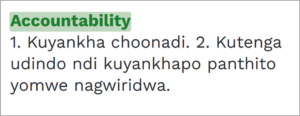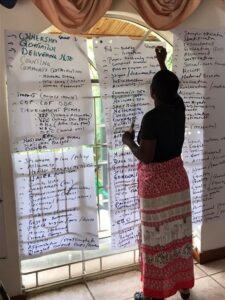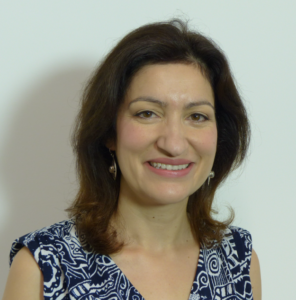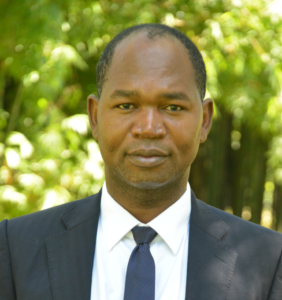Breaking Barriers: A Community-Driven Approach to Translation
The field of international development is dominated by European languages, especially English, with their professional jargon often perpetuating colonial attitudes. Many international development efforts have been plagued by language hierarchies that prioritize Western perspectives, leading to exclusion and marginalization of other languages and cultures. We argue that language inclusivity is essential to achieve the Sustainable Development Goal of ‘leaving no one behind’, and that NGOs working in multilingual environments should conceive of translation as integral to anti-racist practice.
However, operationalizing this aim can be challenging, especially for organizations with limited resources. This is where the Translation Glossary Project comes in. Inspired by the research project “The Listening Zones of NGOs“, led by Professor Hilary Footitt, Dr Angela Crack, and Dr Wine Tesseur, and supported by INTRAC, the Translation Glossary Project has created a participatory and low-cost method to develop translation glossaries of development terms.
Through advocating for a community-driven approach to translation, the project is breaking barriers and paving the way towards more inclusive, participatory, and accountable development practices.
Diagnosing the Problem: The Undervaluing of Translation
One of the key findings of “The Listening Zones of NGOs” research was that many NGO workers struggle with language barriers in their interactions with local communities. Translation problems often lead to breakdowns in trust, hindering the success of development initiatives. Moreover, language barriers impede co-creation of projects, collaborative decision-making, knowledge sharing, and accountability mechanisms. Despite the central role of communication in the NGO mission, language and translation have often been overlooked, partly due to the ingrained racist and colonial attitudes that prioritize Western perspectives and English language dominance.
Translation challenges can arise even in progressive organizations that prioritize inclusion and participation. Many implementing organizations work in linguistically and culturally diverse environments, with multiple dialects within a small region, without sufficient language support. The research participants in “The Listening Zones of NGOs” expressed the need for a simple and accessible translation glossary of development terms that can facilitate better understanding between NGOs and communities, and can be used as a common resource in the sector. While Translators Without Borders provide valuable free support for the humanitarian sector, there is currently no similar resource for development work.
Community-Driven Glossaries: Bridging Language Gaps for Inclusive Development
The Translation Glossary Project has taken a unique approach to address this problem by involving communities in the translation process. In collaboration with communities in Malawi, the project has co-produced a Chichewa-English glossary of essential development terms. The glossary includes translations for terms such as sustainability, resilience, and gender-based violence, many of which were not previously available in print.

The entry for ‘accountability’ in the Chichewa-English translation glossary
The glossary was created during a three-day workshop. On day one, the participants designed the basic structure of the glossary, choosing the terms that they thought would be most useful for the likely readership. On day two, after some basic training in the principles of good translation, they worked in small groups to translate terms. On day three, the groups swapped their translations and exchanged feedback.

This process frequently led to deep discussions about the values that should be encapsulated in the terms used to describe development goals.
What makes this project truly empowering is that the community members who participated in the project had no professional background in translation. They were in the driver’s seat, choosing the terms to be included and finding the simplest ways to translate them, based on their own vision of development. The glossary reflects the local context, making it accessible and relevant to the community it serves.
The resulting glossary is available for free download on the project website. A practitioner’s handbook, available in English, Spanish and Russian, provides step-by-step guidance on how the glossary was created.
The process is designed to be accessible for organizations with limited resources, and the project aims to inspire others in different country contexts to create glossaries in other languages as a practical step towards becoming more language-inclusive organizations.
Embracing Translation as a Transformative Tool: Promoting Inclusivity in Development Practice
The Translation Glossary Project goes beyond mere translation; it unleashes translation as a transformative tool to promote inclusivity in development practice.
We argue that NGOs should embrace language inclusivity as a key aspect of anti-racist practice in international development. Failure to address language hierarchies can perpetuate historical power imbalances.
Translation has the potential to be one of the most profound parts of the journey towards locally led development. Embracing translation as a transformative tool enables organizations to exchange deep understandings of diverse worldviews, foster more inclusive relationships, and shift power dynamics in development initiatives.



